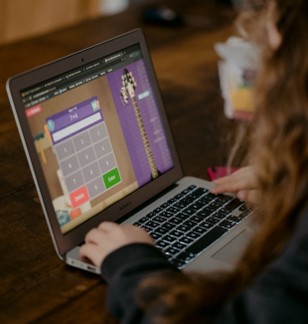Artificial intelligence (AI) generative tools are striking fear in the hearts of many educators across the world as they become increasingly sophisticated and less likely to skulk off quietly into the gaming and entertainment fields. However, that may not be such a bad thing, as experts look toward slashing the fear and giving rise to the advantages of AI in higher education.
Of course, the disadvantages are still imperative to discuss and work through, but Gregory Steinberg of Austin, Texas says that solely focusing on the negative serves as a mere distraction to the great aspects of this rapidly advancing technology.
The Advantages of Artificial Intelligence in Education
From continuous evaluation to productivity boosts to heightened inclusivity, the advantages of AI are plentiful.
Heightened Inclusivity and Accessibility
The COVID-19-enforced online transition required institutions to make major realizations. One of the most important is the necessity for inclusive, accessible learning environments that address diverse needs while mitigating barriers to learning. DEI has become a primary mission at most establishments, meaning faculties must ensure students from distinct backgrounds, preferences, and needs have access to equitable opportunities.
Naturally, addressing such action points is challenging. However, the capacity of AI to take over laborious tasks, offers faculties the time and space to speak with students and focus on the harder pedagogical departments like nurturing life skills, evaluating students, and analyzing information.
Productivity and Efficiency Boosts
AI can enhance operational and strategic tasks in higher education. The concept of 24/7 support is one of them. AI chatbots can answer simple questions, becoming great IT help desk assistants.
Likewise, it can gather and process huge data volumes, garnering a holistic insight from various data points. AI for identification and response to potential dropouts is becoming the norm in some establishments.
Performance Enhancements
Since artificial intelligence can provide continuous feedback, it has the power to increase student performance. AI-powered systems evaluate students’ progress, offering targeted feedback and identifying improvement areas. Plus, the technology can monitor student attention levels, behavior patterns, and more to figure out whether they need additional help in certain subjects.

The Disadvantages
As mentioned, integrating AI into higher education does come with disadvantages, including:
Biased Information
AI is data trained. As such, the underlying information could carry explicit or implicit biases, resulting in discrimination against certain demographics, like minorities and women. Ultimately, it could reinforce unhealthy societal inequalities, undermining the essence of equal opportunities and fairness.
Data Privacy
The use of AI in higher education could require analysis and collection of sensitive data, like student’s academic performance and behavior. Institutions that implement the technology need to ensure all gleaned information is used for its intended purpose only.
AI: Aiding Not Replacing Teaching Roles
Despite many proclaiming concerns over artificial intelligence replacing human teachers, the likelihood of such an occurrence is almost non-existent. Human interaction is essential for establishing creativity and critical thinking, so students should continue having access to both tech and teachers throughout their education, regardless of how sophisticated AI becomes.
